CLINICAL COUNSELLING SPECIALTY:
Anxiety
Do you often feel on edge, overwhelmed, or like your thoughts just won’t stop looping? Are you constantly bracing for something to go wrong even when everything seems fine on the outside? If so, you may be living with anxiety, and you’re not alone.


What is anxiety?
Understanding Anxiety and When To Seek Help.
At its core, anxiety is the body’s natural reaction to a real or perceived threat, even in the absence of immediate danger. Anxiety can feel like an invisible weight you carry everywhere. It shows up as racing thoughts, constant worry, tension in your body, or that restless, unsettled feeling you just can’t shake. It’s a state of heightened alert that can make daily life feel overwhelming and hard to manage.
You’re not alone – anxiety is one of the most common reasons people seek counselling. While anxiety is incredibly common, that doesn’t mean it’s something you should just “live with.” It’s not your fault, and more importantly—it doesn’t have to be your normal.
At Lyn Firth Counselling, you’ll find a calm, compassionate space to slow down, breathe, and start to unpack what’s going on beneath the surface. Together, we’ll explore the roots of your anxiety, build practical tools to manage it, and help you reconnect with a sense of steadiness and control.
Relief is possible, and it can start with one small, supported step forward.
What anxiety Looks Like
Signs and Symptoms of anxiety
Anxiety can show up in many different ways, and it doesn’t always look like panic attacks or constant worry. Sometimes it’s a quiet sense of unease, a racing mind at bedtime, or feeling tense for no clear reason. You might feel “off” more often than not and unsure why. Recognizing the signs is the first step toward understanding what your body and mind are trying to tell you.
- Overthinking or expecting the worst in everyday situations
- Trouble sleeping or constant mental “chatter”
- Feeling restless, on edge, or unable to relax
- Avoiding certain places, people, or situations
- Tight chest, rapid heartbeat, or shallow breathing
- Difficulty focusing or making decisions
- A constant need for reassurance or control

Understanding the Root Causes
Common Causes of Anxiety
Anxiety often has deeper roots than we realize. It may develop over time from a mix of past experiences, current stressors, and the way we’ve learned to cope. Gaining insight into what’s behind your anxiety is an important step toward lasting relief.
IS anxiety holding you back?
How Anxiety Affects Your Everyday Life
Anxiety doesn’t just live in your thoughts. It can affect how you feel, function, and connect with the world around you. Here are four key ways it may be impacting your day-to-day life:
WHAT YOU CAN DO
What You Can Do to Manage Anxiety
Anxiety is manageable—and change is possible. Here are a few simple, effective strategies that many people find helpful. Counselling can be a powerful part of this journey, especially when anxiety feels like it’s taking over.
“Anxiety doesn’t define you and it doesn’t have to control your life. You’re not weak for feeling overwhelmed – you’re human. With the right tools and support, things can get easier. Together, we can gently untangle the worry, quiet the noise, and help you find calm.”
– Lyn Firth, MPCC, RQS
Get in Touch
Take the First Step
(By completing this form you will initiate a request for a Complimentary 30-minute Initial Consult with Lyn Firth.)




